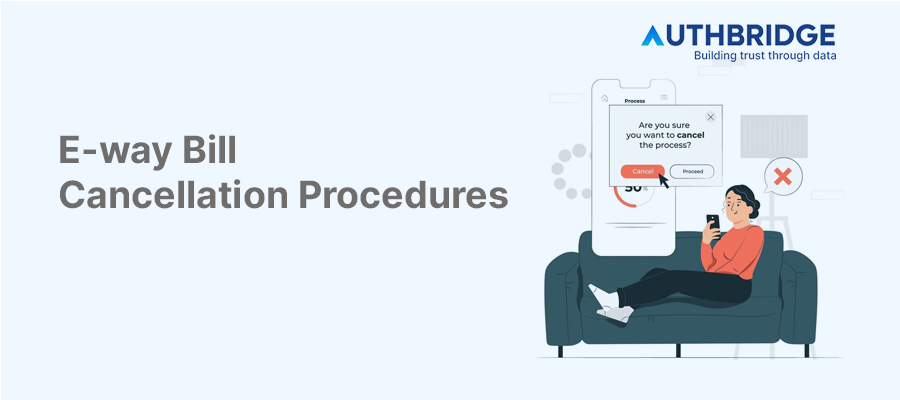Next Steps

E-Way Bills may need cancellation due to various reasons that go beyond simple errors or order cancellations. These reasons include logistical changes, such as route alterations not reflected in the original E-Way Bill, or changes in the mode of transportation that necessitate the generation of a new E-Way Bill. Additionally, discrepancies in the weight of goods or their valuation can also lead to the need for cancellation.
Time Frame for Cancellation
The strict 24-hour window for E-Way Bill cancellation underscores the importance of timely action in case of errors or changes in transportation plans. It's crucial for businesses to establish internal protocols for reviewing and cancelling E-Way Bills promptly to avoid compliance issues.
Via the E-Way Bill Portal
The portal offers a straightforward process for cancellation, but it's important to note that the reason for cancellation must be clearly articulated. The portal provides a dropdown menu of reasons, but selecting "Other" and providing a detailed explanation can help in maintaining clear records for future reference.
Via SMS
The SMS cancellation feature is particularly useful for transporters on the move who may not have immediate access to the internet. To use this feature effectively, transporters should ensure that their mobile numbers are registered on the portal and familiarize themselves with the SMS format required for cancellation.
When Cancellation is Allowed
Understanding the conditions under which cancellation is allowed can help businesses and transporters avoid unnecessary complications. For instance, if goods are partially transported and the E-Way Bill needs modification, it's more appropriate to generate a new E-Way Bill for the remaining goods rather than attempting to cancel the original.
Restrictions on Cancellation
The restriction on cancelling E-Way Bills that have been verified in transit is a critical compliance aspect. This rule underscores the importance of ensuring that all details are accurate before the goods are dispatched. In cases where an E-Way Bill cannot be cancelled, businesses may need to provide additional documentation to tax authorities to explain any discrepancies.
Generating a New E-Way Bill
When generating a new E-Way Bill after cancellation, it's advisable to double-check all entered details against the original invoice or transport documents to prevent repeated errors. Utilizing the E-Way Bill portal's feature to import details from a cancelled E-Way Bill can streamline this process.
Record Keeping and Compliance
Maintaining records of cancelled E-Way Bills, including the reason for cancellation and any subsequent actions taken, is crucial for audit and compliance purposes. These records can be invaluable during GST audits or inspections by tax authorities.
Common Questions on E-Way Bill Cancellation
- Q: Can I modify an E-Way Bill instead of cancelling it?
- A: No, once generated, an E-Way Bill cannot be modified. If there is an error or change required, the bill must be cancelled, and a new one should be generated with the correct details.
- Q: What if I forget to cancel an E-Way Bill within 24 hours?
- A: If the 24-hour window lapses, the E-Way Bill cannot be cancelled through the portal. However, if the goods have not been transported or have been transported differently than described, it's important to document the situation and be prepared to explain it during any compliance checks or audits.
- Q: How does the cancellation of an E-Way Bill affect my GST returns?
- A: Canceled E-Way Bills do not directly affect GST returns since they are primarily used for transport compliance. However, accurate record-keeping ensures that there is no discrepancy between reported transactions in GST returns and the movement of goods as evidenced by E-Way Bills.
Category

Abhinandan Banerjee
(Associate Manager - Marketing)
Abhinandan is a dynamic Product and Content Marketer, boasting over seven years of experience in crafting impactful marketing strategies across diverse environments. Known for his strategic insights, he propels digital growth and boosts brand visibility by transforming complex ideas into compelling content that inspires action.



